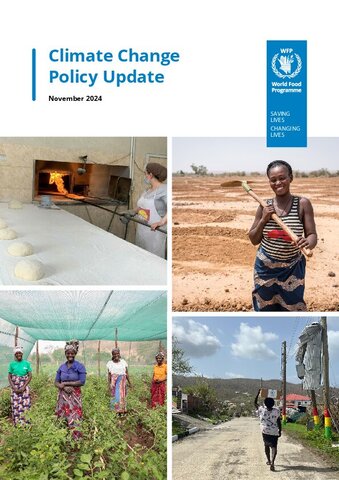
Climate change is a threat multiplier for food-insecure
populations. It intensifies resource scarcity and
worsens the existing social, economic and environmental
factors that underpin hunger and malnutrition.
This
Climate Change policy updates the 2017 version, aiming
to guide the organization’s response to a worsening
climate crisis. It focuses on WFP’s climate-specific and
climate-relevant action in the context of chronic and
acute food insecurity, with a view to supporting
government priorities on climate change mitigation,
climate change adaptation, and loss and damage from
climate change. In 2023 alone, WFP supported almost 18
million people in 60 countries with climate services.
The
policy further highlights WFP’s value proposition in
supporting global, regional and national climate action
through a consistent focus on the most
climate-vulnerable by advancing climate and disaster
protection in fragile and conflict-affected contexts,
applying knowledge-based services on climate risk
management and working at scale with local and
international partners - spearheading climate action in
the humanitarian system.


